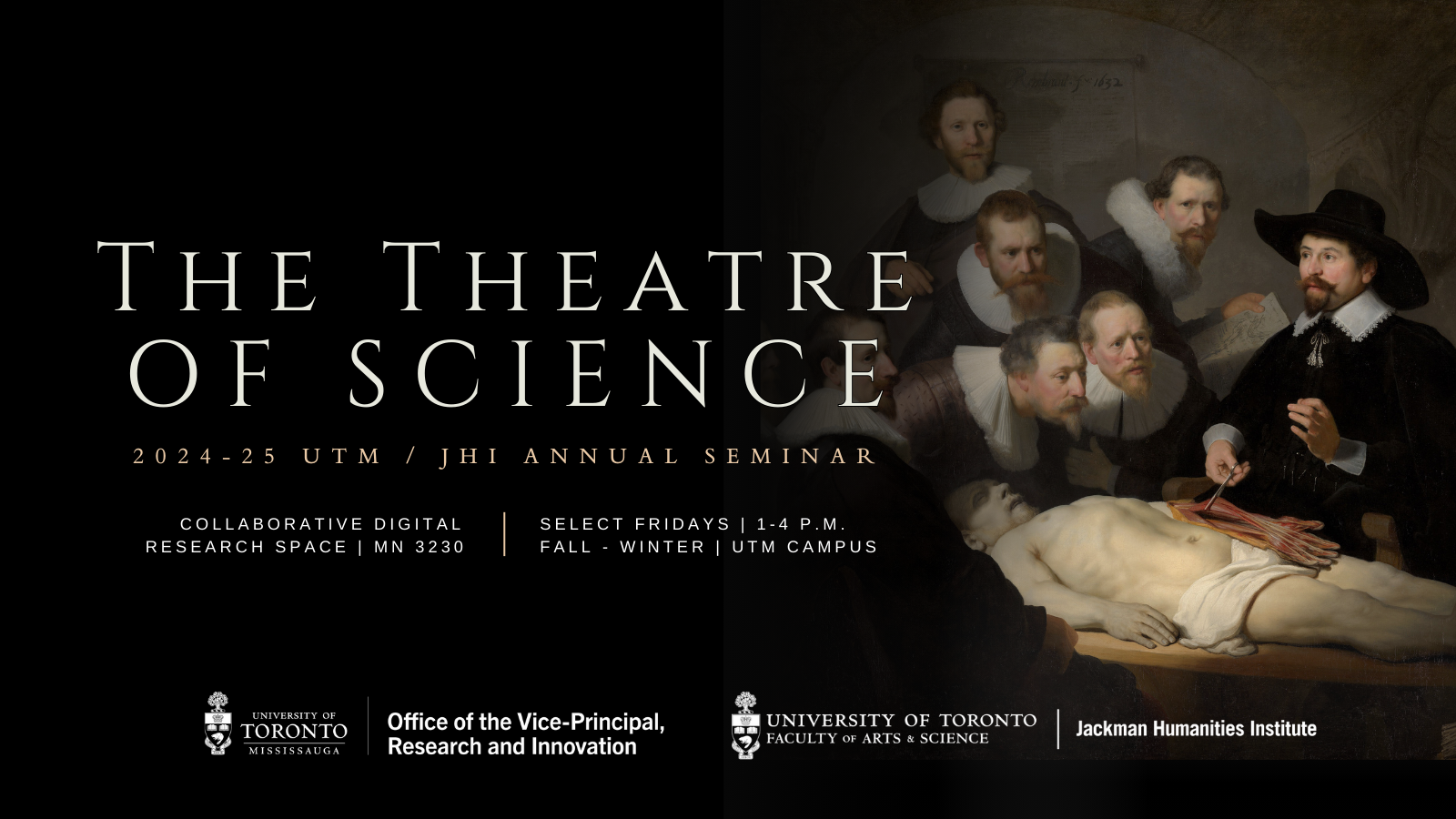2024-25 UTM-JHI Annual Seminar: Theatre and the Environment (2)
When and Where
Speakers
Description
Dawn King’s The Trials | Guest: Prof. Monika Havelka, Department of Geography, Geomatics and Environment
This seminar focuses on the recent play The Trials by Dawn King (first produced in 2022). A dystopian courtroom drama, the play features as its protagonist a jury of twelve underage adolescents who have to decide whether or not to condemn three adult defendants to death. A controversial instance of climate change ‘catastrophism’, the play will be put into perspective by our colleague Prof. Havelka who in turn will be supported by student presentations. We will also invite the director, collaborators, and the cast of the U of T production of The Trials (Hart House Theatre, March 2024) to this event.
Lunch will be available from 12:30 p.m. onwards
About the Series
The recent pandemic has made it abundantly clear that scientific insights must be communicated clearly and effectively so that the public understands and ‘buys in’ by changing its behavioural practices collectively. Persuasive social theatre and suggestive performance techniques are crucial parts of scientific communication strategies — the sciences need the theatre! This need for ‘self-theatricalization’ will only grow in the future, as most key sciences in the 21st century will be ‘embodied sciences.’
On the other hand, there is (and continues to be) a rich and important history of playwrights putting science and scientists on stage, thereby creating interfaces and highly visible public discourses at the intersection of society, religion, politics, knowledge creation, and ethics.
In this series, we’ll examine some of the manifold modes in which sciences and theatre-and-performance art continue to interact. We’ll explore key areas of contact between science/technology and theatre/performance; which sciences and scientists currently attract theatrical interest; where and how scientific knowledge begins and ends — and who needs to know it; and how theatre and performance can best contribute to such re-conceptualized ‘scientific knowledge.’



